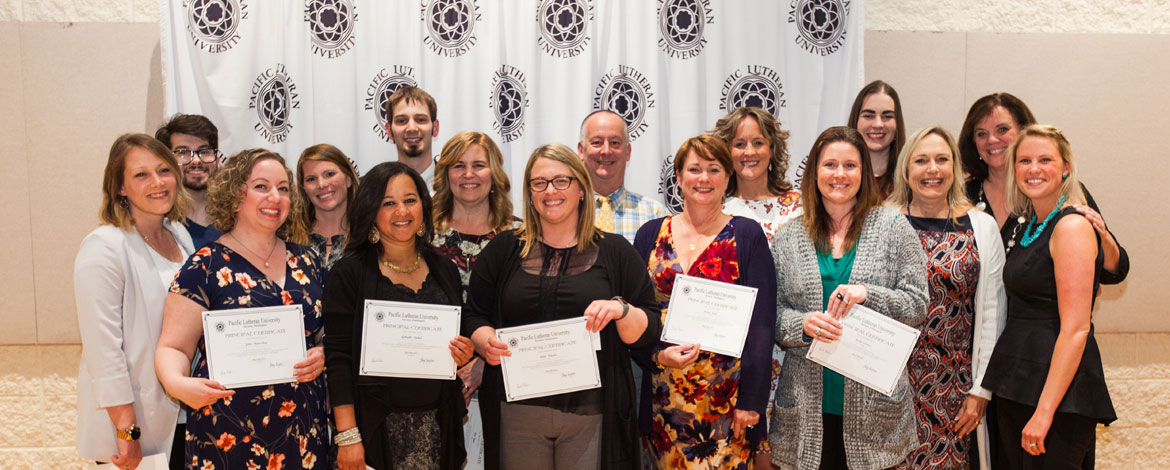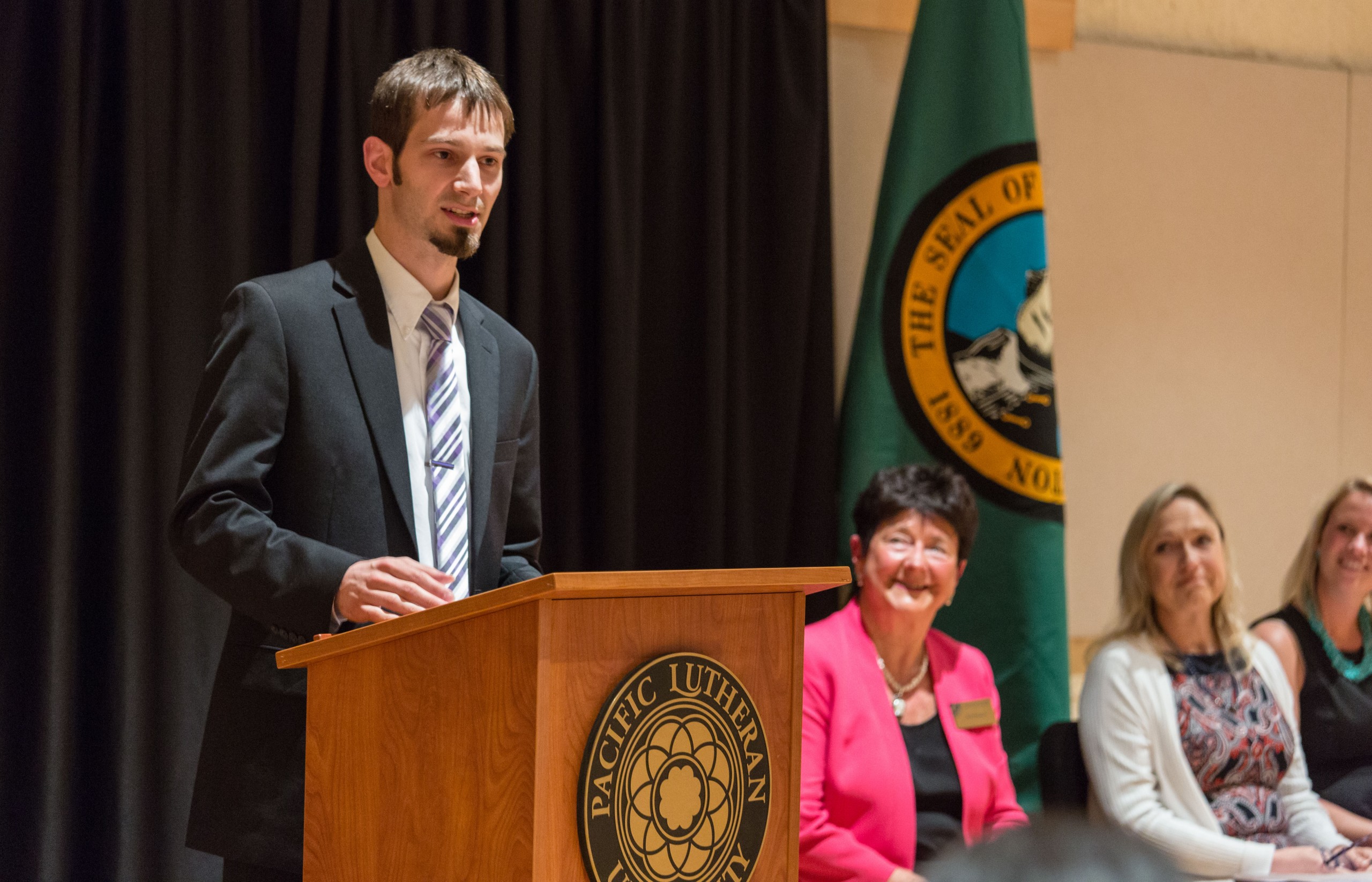Intensive PLU program prepares future principals

Image: The cohort of graduating principals at the School of Education’s Principal Intern Recognition Ceremony on Friday, May 18. (Photo by John Froschauer/PLU)
By Debbie Cafazzo
Contributing writer
TACOMA, WASH. (May 7, 2018) — William Peterson took a non-traditional path to the principal’s office.
After earning a bachelor’s degree in Spanish and a teaching credential, he jetted off to Ecuador where he taught English and expanded his linguistic abilities and cultural knowledge.
Returning to the U.S., he started teaching Spanish at Highline Public Schools’ Raisbeck Aviation High School in Tukwila.
His passion evolved into something else: a desire to become not just a bilingual educator, but a bilingual educational leader.
That goal led him to Pacific Lutheran University’s principal preparation program. The program helped him land a job in the Lake Washington School District as an elementary assistant principal, helping to create a dual-language program.
PLU’s intensive one-year principal preparation program enrolls a small cohort — Peterson’s included just 15 students — that encourages collaboration and sharing ideas. It fosters the development of professional relationships with instructors, many of whom hold administrative positions in area school districts.
“It makes it very realistic,” Peterson said. “They’re there to help you.”
Linda Grady-Hahn, a former public-school principal who now directs the PLU program, emphasizes the crucial role that principals play in recruiting and retaining skilled teachers.
“Teachers in the classroom are the most important people in a school,” Grady-Hahn said. “But those people won’t stay at a school if there’s not a leader that allows them to be their best.”
Principal certification candidates at PLU pair coursework that reflects national and state standards with a simultaneous internship that allows them to work with a mentor principal and put theory into practice.
Karra Lantz, a veteran educator with more than 20 years of experience, worked as a counselor at Purdy Elementary School in the Peninsula School District while serving as an administrative intern at the same school.
The PLU program positioned her to return to Purdy as assistant principal.
“I know I’ll be able to call on any of my PLU instructors for guidance and advice,” she said. She will also be able to draw on the support of other members of her cohort.
Lantz said the program helped her discover her strengths as a problem solver and a strategic planner who anticipates issues before they arise. “The program gave me more confidence in myself as a leader,” she said.
Lantz did her undergraduate work in education at PLU. “I knew the education I got there was great,” Lantz said. “I still draw on things I learned back then today.”
So, when it came time to earn her principal’s credential, PLU was an easy choice.
Lantz also appreciates the reasonable cost of the program, compared to some others she considered.
“PLU was up front about how much it was going to cost,” she said. “They gave you the bottom line.”
Students in PLU’s principal preparation program learn about education law from a practicing attorney who specializes in the field, and hear from experts in special education, student data analysis and finance. The program includes a field trip to the state capital to see how lawmakers enact policy that affects the work of educators.
Grady-Hahn said PLU’s program reflects the evolving role of the principal in education. Today’s principals must possess not only traditional management skills, but community leadership ability.
“The role of the principal has changed,” she said. “You can do great work, but if you don’t share it externally, you’re not going to get all the resources you should.”
Students in the PLU principal program learn about forming community partnerships from practitioners who are already doing that work in local schools.
Grady-Hahn said the face-to-face interaction students receive ensures that they learn the communication skills needed to interact with a variety of audiences, including students, teachers, staff members and parents.
Students learn how a principal can nurture a beginning teacher, or support an experienced master teacher. “Teacher mentoring is a huge part of their role,” Grady-Hahn said.
Cohorts for the principal program form in June each year. A summer of intensive class work is followed by weekly classes, along with an internship, during the school year.
“The summer classes prepare you for what you’re going to face when school starts,” Lantz said. “Weekly classes during the year follow up and continue to take you deeper.”
To be eligible for the program, students must have at least three years’ teaching experience and hold a master’s degree. Prospective candidates can learn more about the program and how to apply for it at plu.edu/education.



